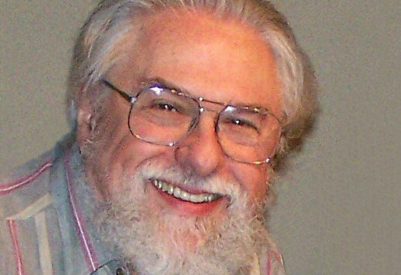
Southwest Tribune Newspaper, Rochester, NY
In Georgia, Black educators are disheartened. They are insulted. Most of all, they are mad.
A new law, signed by Republican Gov. Brian Kemp, restricts teachers from teaching students about race and racism.
According to the text of HB 1084, this includes any discussions that “the United States of America is fundamentally racist,” “any other form of race scapegoating or race stereotyping,” or “espousing personal political beliefs.”
The law “prevents divisive concepts and ideologies from invading the classroom” and removes “obscene materials” from school libraries.
It does not address, however, how violations would be enforced or what the ramifications would be.
“School is a ground for growth for students, growth of the minds of kids,” said Michael Howard, a social studies teacher at Booker T. Washington High School in Atlanta. “This threatens that.”
Many Black educators said the new law could not only threaten their jobs, but that it also impacts their ability to teach and connect with students.
Howard and other Black teachers also called the law “short-sighted,” “disingenuous” and a “political ploy,” accusing Kemp of currying favor with conservative voters ahead of his bid for re-election this year.
“I don’t think he truly understands the importance and the impact of passing the law,” Howard said. “The majority of parents want their children to be critical thinkers, and for teachers to at least give students the opportunity to form their own opinions and ask tough questions. The majority of parents do not want a closed view of history.”
The law is part of a growing nationwide campaign to remove books and curricula about race, racism or the contributions of people of color from classrooms. Arkansas, Idaho, Iowa, Florida, New Hampshire and Tennessee are among the states that have passed similar bills, with more than a dozen others with bills or policies moving through state legislatures.
As Phyllis Graham, a retired teacher in Augusta, put it, the laws are designed to “not have white kids feel bad about what their great-grandparents did.”
“They are thinking nothing of what Black children need to know about history — or even what’s happening now in America,” she said. “And with the racial divide in America now, they want teachers to be mum in the classroom? To say this bill is about helping is disingenuous.”
The governor’s office said in a statement to NBC News that Kemp “worked with parents and students, education leaders, members of the General Assembly, and state and local elected officials, to pass a legislative package that empowers students and parents when it comes to the education of their children, as well as Georgia’s hardworking teachers. HB 1084 is a measure that bans the teaching of divisive concepts while also protecting academic freedom and instruction.”
Chris Stewart, the CEO of Brightbeam, a nonprofit network of education influencers, said the Georgia bill indicates that the momentum for this kind of legislation is surging.
“We’re in real trouble if we continue to allow the restriction of educators … and turn a blind eye to it,” he said. “You will literally have educators who we entrust to teach kids every day … There are going to be things that they can’t teach. There are going to be books that they can’t use. There are going to be movies that they can’t show. They’re not just the laws that don’t have any real impact. They will have a literal impact on how educated our children — Black, white and brown — will become, from what their teachers can teach them in classrooms.”
Keene Walker, a veteran educator who teaches at South Atlanta High School, said that students depend on teachers to elevate conversations about current events.
“How would a student feel sitting in a classroom now, where last year the same instructor would enlighten, bring the class the truth and put it into historical context,” he said, “but now someone could possibly come in and threaten that teacher’s livelihood over teaching the truth?”
“It would be utterly irresponsible to ignore significant events that happen because it could be about race,” he went on. “That would be setting up kids for academic suicide, for social suicide. If we can’t keep it real, raw and relevant with our students, we are going to lose a whole generation of future scholars.”
In 2020, students at Washington High led a Black Lives Matter rally in front of the school. About 300 people from the community also came out, Howard said. “The kids are very aware and they know how to mobilize within their community. And the idea of not being able to talk to them about what they just did is unrealistic.”
"Educators everywhere try to make their lesson plans relevant to the lives of the children that they have in their classroom, because that’s part of teaching," he said. "Our teaching is getting kids to understand how some of these very important lessons in life around them ... are relevant to their lives, but they need to see the connections. And educators can’t do a really good job if they can’t make the connections.”
Jeri Byrom, who taught in Georgia for eight years before working as an educator in Prague, India, London, Malaysia and South Africa, said the issue comes down to racism.
“[America] was founded on the backs of people who were oppressed. So, we’re just going to write that out of the history books now? Not teach that truth?” she said. “There’s no way to silence people and there’s no way to hide history. And it’s really misguided and short sighted to try to do it in the schools, where learning is supposed to take place. Trust me, it will cause more problems.”
Black educators said they are not looking for trouble — some refused to publicly discuss the bill. But many said not discussing the day’s issues would be difficult to do in a society where race factors into much of life. Some said they will have to be “creative” to stay within the framework of the spirit of the bill.
“And they should,” Byrom said. “You can take something that is controversial or potentially explosive, and build a curriculum around it and create a way to teach it, so students can say what they feel respectfully, they can have discourse around it and learn from it. And they will learn how to speak with people who might not feel the same way they feel and understand each other. So, it’s a huge mistake to try to take that way. It won’t work. There is no way now you can silence students.”
Other educators wonder how the state will enforce the law, since it wasn’t explained in the bill. Stewart said the language in the bill is intentionally “vague,” opening the way for parents in some areas to find issue with a subject matter discussion when it may not be considered controversial in others.
“So maybe in some districts, this won’t be as much of a problem,” he said. “But this law can be applied in many different ways."
“And what it’s really going to do, because it’s so vague and it can be used so powerfully by parents, is make districts gun-shy about doing anything controversial, which will make them proactively remove things from the classroom, from the curriculum that is good for kids to read and learn and understand. They’ll proactively remove those things just so that they don’t run afoul of this very vague law.”





